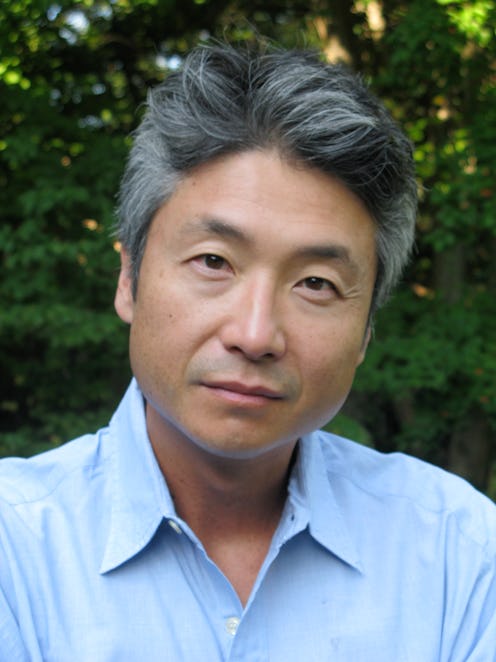Books
'On Such a Full Sea' Is a Fresh Take on Dystopia

Dark visions of the future are certainly not a new subject for contemporary fiction. In the 1980s, there was Margaret Atwood’s The Handmaid’s Tale, a speculation of what might happen if conservative religious factions took control America. And more recently, there was Cormac McCarthy’s popular The Road, as well as dystopian novels for a young adult audience, like Suzanne Collins’s Hunger Games series. This outline, of course, does not even mention early-20th century classics like Brave New World and 1984.
Grim futuristic societies (or not-societies in the case of The Road) are well-traversed terrain for American fiction, so one might wonder: What else can a writer bring to this subgenre, often meant to serve as a kind of warning against what might happen? Orwell was concerned about communism, and Atwood about the rise of the Christian Right. However, Chang-rae Lee’s On Such a Full Sea (Riverhead) impressively proves that an author can indeed write a fresh and original dystopian novel by, well, not trying to warn against anything at all.
On Such a Full Sea is an elegant dystopic vision of a United States splintered by strife and then reorganized under the provisions of a socialist totalitarian regime. “Charter” villages, where the wealthy elite live, are at the top of the food chain, having the best access to health care, food, and other luxuries. And then there are the supplier settlements like “B-Mor,” once Baltimore, from which the novel’s main character, Fan, hails.
The residents of this settlement seem content with their second rate-ness, their second-rate food, their second-rate education, their second-rate medicines — all of which is prescribed by some mysterious government organization that oversees this tattered America. But B-Mor residents are content because life could be worse: they could live in the “Counties,” the lawless, wide-open expanses of land patrolled by cruel outcasts bent on torturing the more privileged.
This artfully constructed narrative is full of many details about this new America. In an interesting authorial choice, Lee’s novel is narrated by a first-person-plural chorus of B-Mor residents, still residing there and telling Fan’s tale since her decision to leave the settlement has now become legend in that community. This narrator, therefore, weaves between Fan’s journey — which brings her from B-Mor to a counties settlement in “the Smokes” (probably the Appalachians) and then a Charter colony in upstate New York — and meditations on life in B-Mor. (This maneuver, while it ultimately enriches the novel, can be frustrating for readers who are often pulled away from Fan’s story at its most dramatic moments.) Lee has put a good deal of thought into the construction of this world, describing it in much details with tidbits about food supply systems, the living situations of B-Mor residents, and other features of daily life.
And while Lee’s novel isn’t against anything specifically, like Atwood’s and Orwell’s were, it would be an oversight to say that On Such a Full Sea doesn’t have a broader philosophical point. Because for Lee, dystopia is not a means for a political agenda but a way to probe the way we live today.
The novel has many cultural resonances: the competitive, elite Charter children, with their myriad standardized tests, are reminiscent of high-pressure childhoods in Shanghai and Beijing; the middle-of-the-road B-Mor reminds one of American suburbs; and the Counties, its scruffy and poor, yet satisfied and connected, residents seem to be drawn from notions of families in the more remote areas of America.
So instead of looking outward at the problems contemporary society faces, Lee looks inward, taking our world and plopping it in some distant and different — yet not too distinct — future. Because it is at arm’s length we can best understand what is right in front of our noses.
On Such a Full Sea by Chang-rae Lee, $9, Amazon
Image: Annika Lee